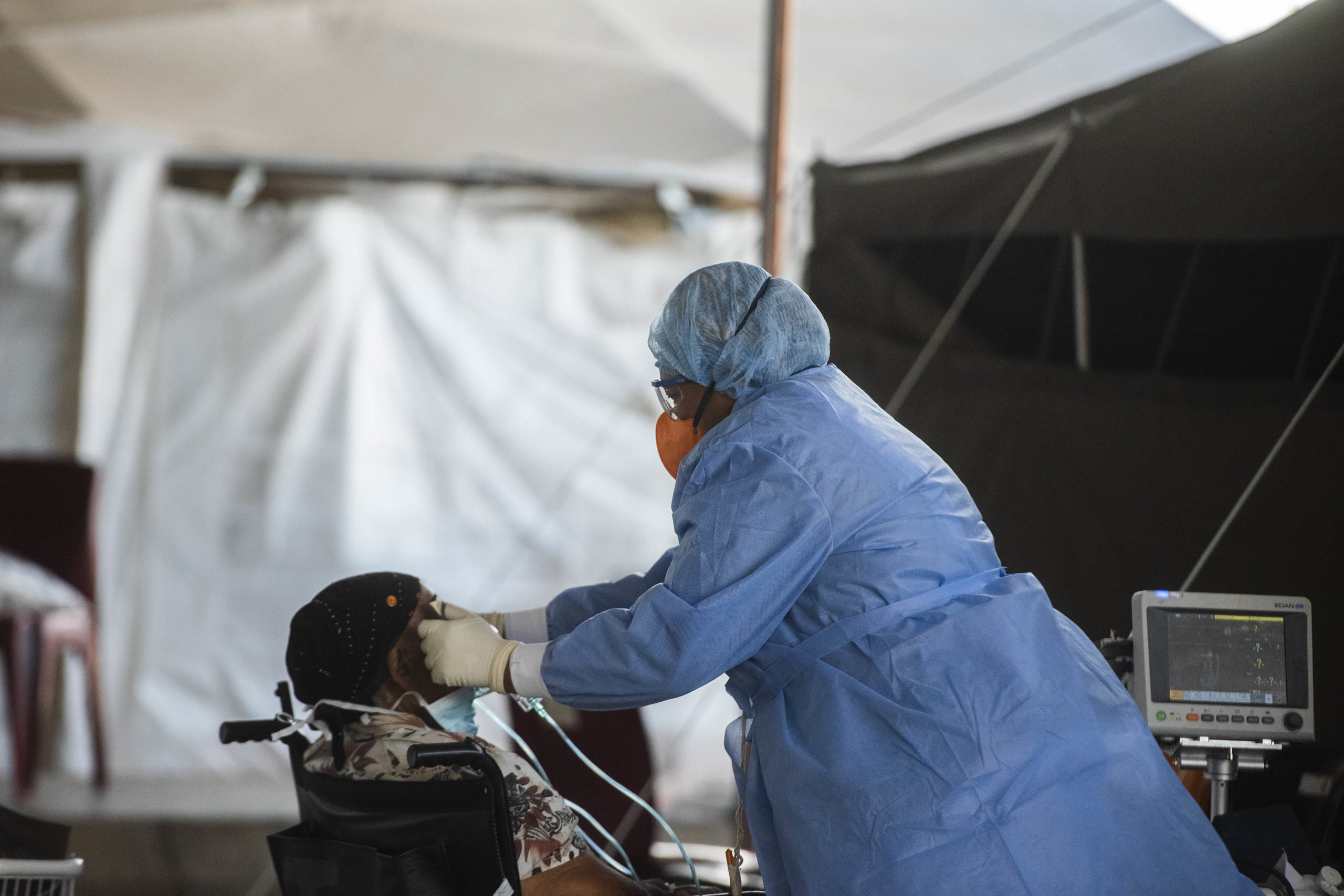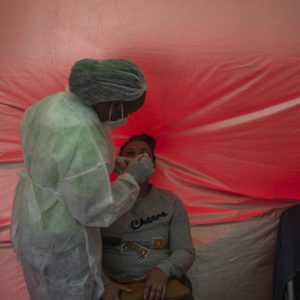South Africa’s next Covid-19 frontiers
The challenges of the pandemic are not new, but the country and the continent still face a long road to adequate vaccination and getting coronavirus infections under control.
Author:
9 September 2021

As Covid-19 infections, hospitalisations and deaths begin to drop at the end of a third wave that has lasted longer than its predecessors, South Africa’s major challenges in dealing with the pandemic are familiar.
While new variants of the coronavirus are likely to continue emerging, recent data show that a highly mutated variant circulating in South Africa does not appear to be destined for dominance. The C.1.2 lineage was initially spreading at similar rates to the Beta and Delta variants in their early days. A recent presentation by Tulio de Oliveira and Houryiah Tegally of the Network for Genomic Surveillance South Africa, however, suggests the initial spike may be tailing off, with C.1.2 making up only 1.5% of all genomes sequenced in August, down from 2.2% in July.
Switzerland, where two cases of the variant have been sequenced, and the United Kingdom, where four have been sequenced, are the only other countries with more than one sequenced C.1.2 genome.
Related article:
For now, then, fatigue with the variant we already have, rather than new variants, remains South Africa’s biggest Covid-19 challenge. But despite the Delta variant’s ability to spread more effectively between people – and while it will likely be impossible to distinguish the relative contributions of viral and societal factors to that transmission – the efficacy of vaccines and their importance in overcoming the variant are now incontestable.
Recent studies that suggest vaccines provide up to 96% protection against severe symptoms, hospitalisation and death from Covid-19 appear to have been confirmed in figures released earlier this week by Groote Schuur hospital in Cape Town. Of the 254 people hospitalised with Covid-19 there, only three had been vaccinated, but those three were not in intensive care or on ventilators. According to research commissioned by public benefit organisation Solidarity Fund and the government, the Western Cape is South Africa’s most vaccine-hesitant province.
Vaccination rates
Nearly 17% of adults in South Africa are now fully vaccinated. There was a steady rise from the end of June in the number of vaccines administered every day. There was a slowing down in the first half of August, but after residents over the age of 18 became eligible for vaccination on 20 August, daily vaccines peaked five days later at 281 387 doses. But the number of daily doses administered has been declining since then. The daily average of 189 111 doses for the second week of September, for instance, is well below 211 104 a day in the first week of the month.
Even among vaccinated people, though, the Delta variant now appears more likely to cause “breakthrough infections”. A recent study of 161 such infections among a population of 24 706 vaccinated American healthcare workers showed that, while not common, these infections do occur. Infectious virus shedding, however, was reduced in breakthrough infections.
Only 28% of people in South Africa say they will not get vaccinated, according to the Solidarity Fund and government-commissioned research. But the idea that hesitancy – and no longer vaccine supply – is the main obstacle to achieving higher levels of vaccination has gained traction with some, including the health ministry and the chief executive of medical aid behemoth Discovery.
Related podcast:
Francois Venter, an internal medicine specialist and the deputy director of the University of the Witwatersrand’s Reproductive Health and HIV Institute, rubbished this suggestion. The reason South Africans have been slow in getting their jabs has less to do with hesitancy and more to do with “appalling delivery and demand creation … Our single biggest challenge is vaccination rates among the elderly,” he said. Fewer than 5.5 million vaccines have been administered so far among people 60 years and older.
“Vaccination is overwhelmingly concentrated in the young, the urban, the wealthy, the educated and people on medical aids. Much more needs to be done to make access easier and seamless,” said Venter.
Nearly 1.5 billion vaccine doses are being produced every month, a rate that could see global supply outstrip demand within a year, according to projections by science analytics company Airfinity. The inequity in vaccine supply remains dire, however, and vaccine suppliers are woefully behind in their delivery, particularly in Africa.
Only 2.5% of people on the continent, which reported a record peak in weekly deaths at the beginning of August, were fully vaccinated as of that month. While Seychelles and Mauritius had inoculated more than half of their populations, a number of other African countries, including Burkina Faso, Chad and the Democratic Republic of Congo, had vaccinated fewer than 0.1% of theirs.


